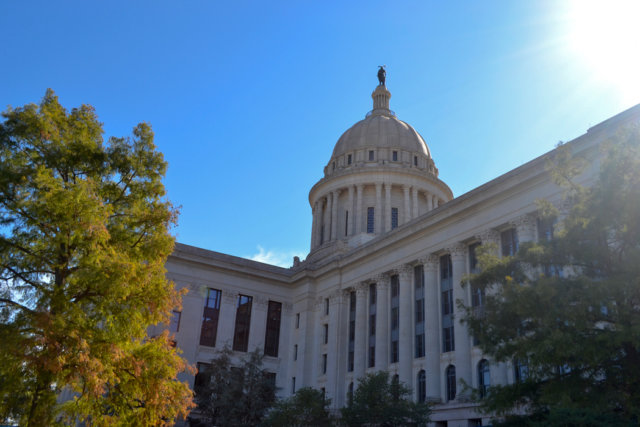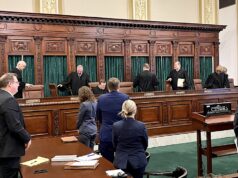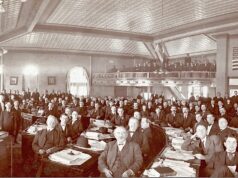
While Gov. Mary Fallin announced Dec. 7 that she intends to call the state’s second special session for Monday, Dec. 18, she has yet to make an official announcement, which would include the scope.
Lawmakers, lobbyists and other onlookers have expressed growing anxiety over the uncertainty, with members of the state House of Representatives conveying bewilderment after their Special Investigation Committee meeting this morning.
Asked about the situation Thursday around noon as she was leaving the Capitol, Fallin said her plans for special session have not changed.
“Monday is still the date,” she said. “We will be giving more details.”
Rumors have swirled this week that a group of prominent Oklahoma business leaders has been working to find agreement on a revenue package. Unprovoked, Fallin hinted at the topic as she rushed to her vehicle for a family event.
“There are various meetings going on between leaders in the House, the Senate and my office, including a lot of people in the business community who have been trying to help put Oklahoma on a better, stable path and also trying to help us provide a way forward for a teacher pay raise,” Fallin said.
‘It must be a really special session’
Offered anonymity to discuss the situation freely, some lawmakers turned to humor.
“It must be a really special session that the governor has in store for us just in time for Christmas, or she has no idea what she is doing,” one member said. “My bet is on the latter.”
Another lawmaker also spoke colloquially.
“Been a lot of places seen a lot of things, but never nothing like this,” that person said before modifying an old Will Rogers quote. “The only difference between death and taxes is that death doesn’t get worse when the Oklahoma Legislature meets.”
Background ahead of second special session
But with a stand-alone cigarette tax appearing unlikely to receive support from House Democrats, negotiations moved to a revenue bargain including multiple tax increases. The Senate pushed for such a package to include a gross production tax increase, but a House floor vote fell five members short of passing into law.
Fallin and others have said the 2018 Legislature will start with a revenue hole of more than $600 million owing to continued use of one-time funds to fill previous gaps.
At the same time, financial problems at the Oklahoma State Department of Health have placed significant political pressure on the executive branch. House members have been investigating the situation from a political perspective, while the attorney general’s office has been investigating for potential criminal activity.





















